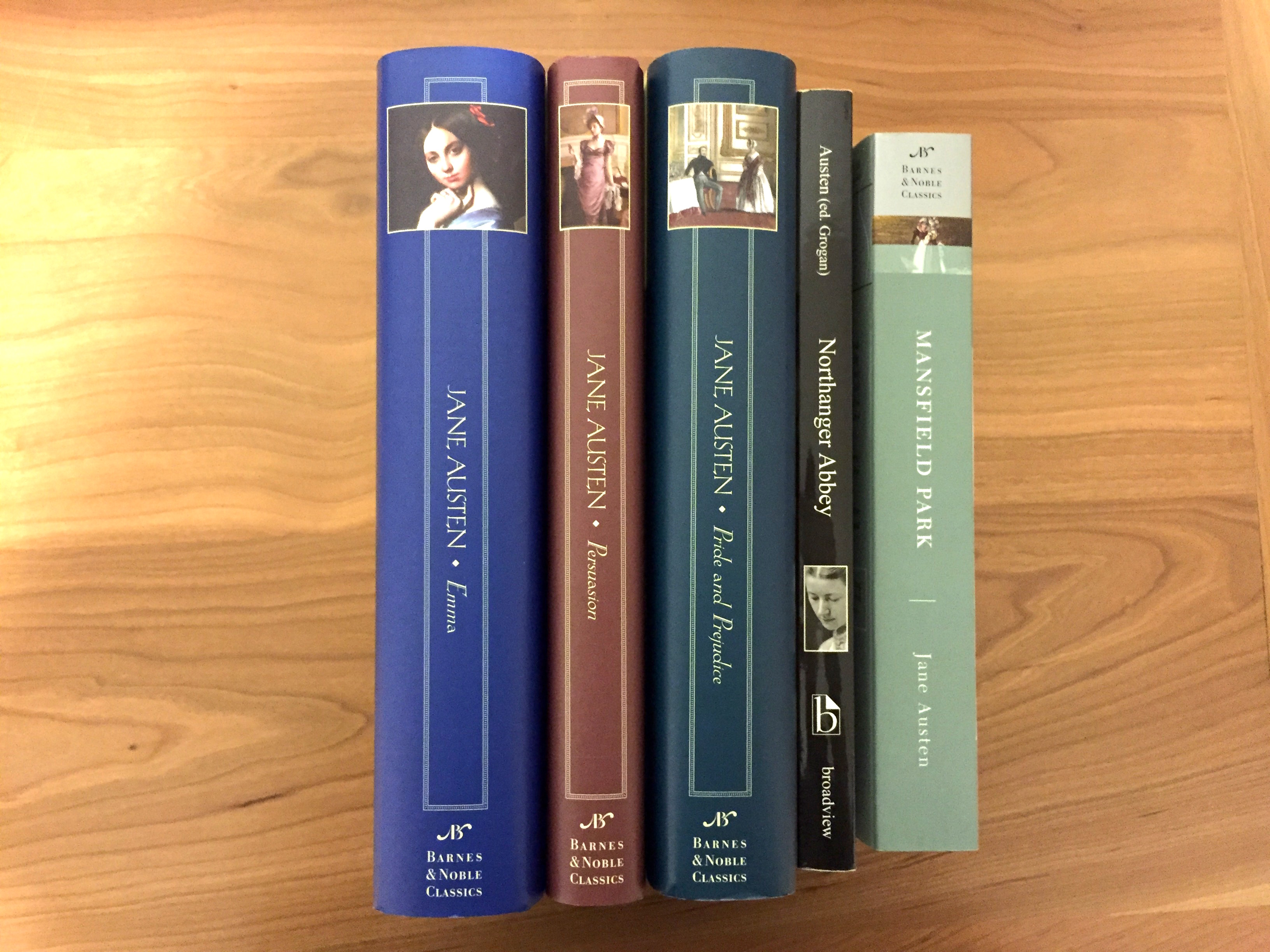
I apparently need to buy a hard copy of Sense & Sensibility, stat.
Do you ever take notes, knowing – KNOWING – that you will be able to remember what it was you meant later, and then not having a clue AT ALL what it was you meant two months later when you finally take a look at those notes? Nope, me neither.
Umm, yes. Yes, me. And this exact thing happened with some notes I took earlier this year when I went to a 1-day conference on Jane Austen.
At the @mendota_seminar with @EnglishUW for a celebration of 200 years of #JaneAusten. Bring on the Austen!
— Abbigail E. Kriebs (@abbigailekriebs) October 24, 2015
In case you did not know you were in the company of a lit nerd on this blog, you know it now.
I still live in the city where I went to college, and the English Department of UW-Madison puts on what they call the Mendota Seminar each year. I’m guessing it’s because the entire department looks out over Lake Mendota. The building is not pretty, but the lake sure is. This year, the seminar was all about Jane Austen, and I was stoked to go back to school for a day to nerd out with other literature fans.
And I did. It was really amazing to be back in an environment where everyone in the room had been impacted by the same words in some way or another – and impacted enough to give up a Saturday – to pay money even – to come together and celebrate them.
What a Day of Austen Taught Me
However scratchy my notes are, I did come away from the day having learned something.
1. Through one of her least-liked characters, Austen teaches us that patience and timing are almost everything.
Mansfield Park‘s Fanny Price is poor, passive and never stands up for herself. She allows aunts and uncles and cousins to determine her fate, all while she keeps her thoughts very close to her own heart.
Professor Theresa Kelly discussed Fanny’s situation, likening her ability to secure herself a marriage to the game of Speculation played throughout the novel. In the end, Fanny choses to play the exact right card at the most advantageous moment to her – learning to advocate for herself and allowing her to win the heart of the man she loves. She wins when she learns to ask for what she wants.
2. “These wonderful things are for you.”
Sam Scheer teaches English Literature in a high school in Connecticut – one where the graduation rate had been dropping for years, where students were graduating without being able to read, and where kids were not interested in reading altogether.
Scheer emphasised that not only do we need teachers willing to invest in students, but we need teachers who are willing to introduce students to the best things. It’s about giving them access to a “high culture” that they may not feel is theirs.
We have to teach Austen and others to HS students because we are telling them all of these wonderful things ARE for you. @mendota_seminar
— Abbigail E. Kriebs (@abbigailekriebs) October 24, 2015
3. Every story is a travel story.
Throughout her novels, Jane Austen continually emphasizes travel as beautiful and virtuous. Professor Susan Bernstein walked us through the novel Persuasion and how it becomes a travel story not only for the heroine, Anne Elliot, but also for women of Austen’s time in general – this is the novel where the Navy and its representation of an ascending class occupation is the most prominent in Austin’s work. The institution offers mobility both upward in society and throughout the world, and that idea would have been very appealing to Austen and other women in this time.
But its not all roses in the novel. Persuasion is also story where complications only occur in real places, and happy endings only occur in imaginary ones. Austen, ever a realist, still believed that marriage was a complicated social contract. But still, her heroines are not resigned to be quiet and confined:
Quiet & confined is not the best setting for women in #JaneAusten – the women in the novels remark on it themselves. @mendota_seminar
— Abbigail E. Kriebs (@abbigailekriebs) October 24, 2015
Novelist, as North Star
There was more more to the day, including a brief history of the founding of the Jane Austen Society of North America – or, JASNA; a discussion of Austen as she is represented throughout the last two hundred years in pictures (with wedding rings! Oh, no), and, of course, high tea.
Professor Caroline Levine led a close reading of Austen to finish out the day, encouraging all to slow down and notice the language we use in our every day life. We have lots of options as we think and as we write, and we need to think about them more often, more deliberately.
Perhaps my favorite quote of the day was from Joseph Wiesenfarth as he described the founding of the Jane Austen society.
“#JaneAusten is novelist, just as the North Star is the North Star.” @mendota_seminar
— Abbigail E. Kriebs (@abbigailekriebs) October 24, 2015
Jane Austen, The Novelist.
Are you an Austen fan? If so, what’s your favorite work and why?

Leave a Reply